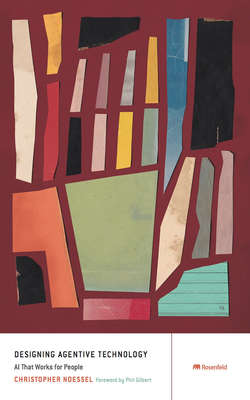Читать книгу Designing Agentive Technology - Christopher Noessel - Страница 41
На сайте Литреса книга снята с продажи.
They’ll Do the Things We’re Unwilling to Do
ОглавлениеShotSpotter is a civic agent that constantly listens to a large number of microphones that are sprinkled across a neighborhood. When it hears gunshots, it compares the timestamp on each microphone to triangulate the location of the shots to within a meter’s accuracy. Within seconds of the gunfire, officers can be on their way to investigate.
How Does Auto* Fail Gracefully?
Agents do things for you while your attention is elsewhere. That’s an awesome way to maximize your time, but it can pose a major challenge if you and others are relying on the agent to do its job, and it runs into a problem big enough that it needs someone to take over quickly to avert a crisis. How does a person get up to speed quickly on the state of things? What is the troublesome thing and what’s troublesome about it? What does the user need to do to remedy things, what are the options and recommended actions, and how is the handoff between agent-control and manual-control handled? Will it be active, like manually removing the autotiller device from the tiller, or more passive, like simply grabbing the wheel and canceling cruise control? How fast will this handoff have to happen, and how can we make it efficient?
These are new questions for interaction design that will be fun and important to answer. But with more and more travel being handled by agents, it promises not just to become safer and more efficient overall, but also to give riders more time to do things that interest them, only occasionally needing to manage the vehicle. These issues are important enough to warrant two chapters in this book. See Chapter 8, “Handling Exceptions,” and Chapter 9, “Handoff and Takeback,” in Part II.
When I spoke with a representative from ShotSpotter, she explained that the service is helpful for more reasons than just decreased police response time. It also helps ensure that the “shots fired” signal reaches the police at all. One factor is the bystander effect, in which people presume that surely someone else has reported it already. This might affect people living anywhere. But citizens living in high-crime areas, she explained, can often fear being labeled a snitch and suffering consequences for reporting crimes. ShotSpotter takes this responsibility that no one wants unto itself.
